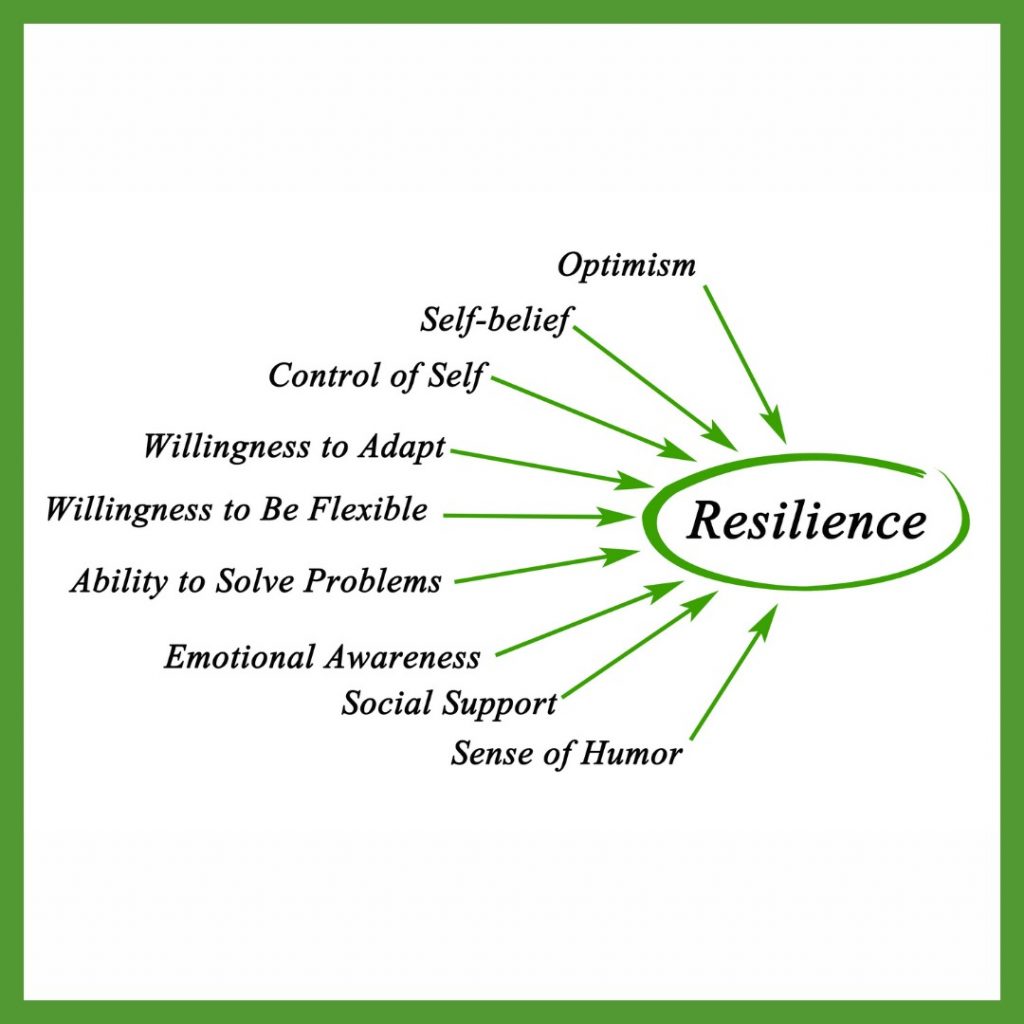Edition: October 11th, 2021
Curated by the Knowledge Team of ICS Career GPS

- Excerpts from article by Baalmiki Bhattacharyya, published on peoplematters.com
Resilience is an individual competency and leaders who are resilient have some unique traits. They see failures only as temporary setbacks from which they can recover quickly. During periods of turbulence they maintain a positive attitude and a strong sense of opportunity.
When faced with ambiguity in a VUCAD (Volatile, Uncertain, Complex, Ambiguous, Diverse) environment, they find ways to move forward and avoid getting stuck with baggage.
Many studies have highlighted the importance of resilience as both an individual leadership trait as well as an overall organisational characteristic.
Here are 7 ways through which effective leaders demonstrate resilience:
1. They communicate powerfully
- Some people often choose to act individually and do not inform others about what they intend to do or are trying to do.
- The most resilient leaders are effective at proactively communicating their intentions to others.
- They are willing to help others comprehend a new strategy or understand a new direction.
- This strong and effective communication helps others understand and manage upcoming changes, expectations and new directions.
2. They are open and receptive
- Openness and receptivity are two differentiating traits of a resilient leader.
- Resilient leaders are humble, they are open to feedback and they often ask others for feedback, across hierarchies.
- They demonstrate openness to learning, a real zeal and sustained effort to improve their skills and abilities in the gap areas.
- Leaders who are open and receptive consequently develop a high level of self-awareness.
- All of these traits make them coachable throughout their careers, which further fuels their productivity and their leadership effectiveness.
3. They invest in lasting relationships
- Resilient leaders bring people together. They are able to create strong teams by continuously building trust, being open to differences and developing strong relationships with all stakeholders.
- This becomes a differentiating factor in ensuring effectiveness because while an individual may be willing to make a dramatic change, it requires strong positive relationships to get all stakeholders to support any change.
4. They take bold risks
- Resilient leaders are inclined and ready to try new ideas and take bold risks.
- While it is easy for many leaders to be comfortable in their ivory towers, continuing to conduct work in the same way year on year, this approach rarely works well when the business environment changes.
- In the context of a VUCAD (Volatile, Uncertain, Complex, Ambiguous, Diverse) business environment, resilient leaders are not afraid to take bold risks and usher in dramatic changes.
5. They develop others
- There is mounting evidence that the most resilient leaders are not only interested in their own development but they are equally concerned about the development of others.
- They not only own their own development but that of others also.
- Resilience is most needed when we encounter failure. Hence, developing others helps everyone to learn from their mistakes and take course corrective actions.
- Noticeably, it has been observed that leaders who want honest feedback for themselves are more likely to give constructive feedback to others and act as their coach.
6. They champion change
- In today’s business environment disruptive change is a business reality.
- Resilient leaders are amenable to change and demonstrate willingness to change.
- Owing to the embracement of the above, they are able to provide the requisite leadership to ensure that the organisation also adapts to the change happening in the environment.
- To provide this kind of leadership, one needs clarity of vision and courage to steer the entire organisation towards change.
7. They are firmly decisive
- Decision-making is a complex paradox, which is difficult to unravel.
- No person has all the data or the comprehension of all the data or an understanding of all possible eventualities.
- However, the truth is that organisations cannot move forward until a decision gets made.
- The most resilient leaders are effective at making decisions and moving forward by sticking to the decision.
- They do not suffer from decision paralysis. And, in case they realise they have made a wrong decision, they are quick to make a different decision and move in another direction.
Resilience is a critical characteristic of high-performing leaders who are out there to create a tangible business impact and leave behind a legacy.
…
(Disclaimer: The opinions expressed in the article mentioned above are those of the author(s). They do not purport to reflect the opinions or views of ICS Career GPS or its staff.)
Like this post? For more such helpful articles, click on the button below and subscribe FREE to our blog.




